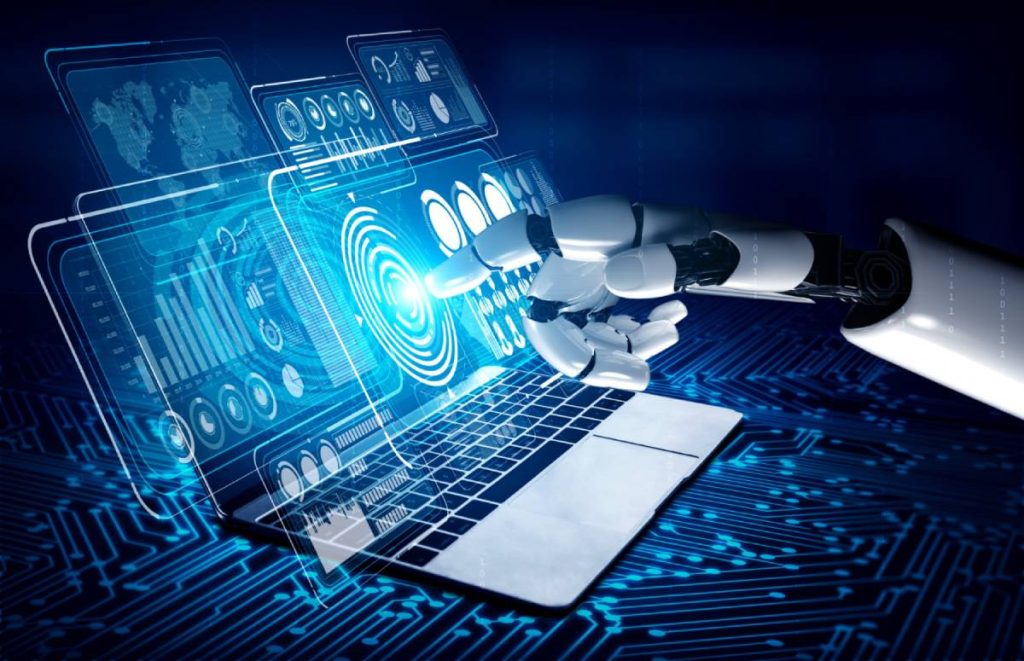How AI Tools Streamline Workplace Efficiency
The integration of AI tools into modern workplaces is dramatically enhancing efficiency and productivity. From automating repetitive tasks to offering real-time insights, these tools have become essential components in daily operations across industries. In many businesses, tasks that once consumed hours—such as data entry, document organization, or report generation—are now handled effortlessly by intelligent algorithms. This not only saves time but also reduces human error, allowing employees to focus on more strategic responsibilities. Moreover, AI tools are designed to learn and adapt over time, meaning their capabilities grow as they are used, offering even more accurate and efficient support. This ongoing evolution is transforming routine workflows into seamless and intelligent processes that empower teams to accomplish more with fewer resources.
AI Tools in Project Management and Scheduling
Project managers are increasingly turning to AI tools to optimize planning, scheduling, and team collaboration. These tools analyze vast amounts of project data to predict potential delays, suggest resource allocations, and even recommend workflow adjustments in real time. Instead of relying on manual spreadsheets or time-consuming status meetings, managers can now access live dashboards powered by artificial intelligence that provide instant clarity and foresight. In team environments, automated reminders and intelligent scheduling reduce missed deadlines and increase overall coordination. By integrating AI tools into project management systems, businesses are not only improving task execution but also reducing operational stress. The result is a more agile, organized, and data-driven approach to managing complex initiatives.
Enhancing Customer Service with AI Tools
One of the most visible applications of AI tools today is in customer service. From chatbots that handle inquiries 24/7 to sentiment analysis engines that assess customer mood, artificial intelligence is reshaping how businesses interact with clients. These tools can instantly answer common questions, route requests to the correct departments, and even resolve simple issues without human intervention. As a result, customer satisfaction increases while operational costs decrease. Additionally, AI tools help service teams understand recurring issues by analyzing past interactions and highlighting patterns. This allows for proactive improvements and more personalized support. As AI continues to evolve, the customer experience becomes more responsive, efficient, and tailored to individual needs.
AI Tools in Data Analysis and Decision Making
The sheer volume of data available to organizations today makes traditional analysis methods impractical. AI tools are bridging this gap by processing vast datasets in seconds and extracting actionable insights. Whether it’s sales trends, website traffic, or customer behavior, AI-driven analytics platforms offer predictive models that guide decision-making. These tools not only identify what is happening but also suggest why it’s happening and what actions should be taken next. Executives and analysts now rely on AI tools for real-time dashboards, anomaly detection, and forecasting that were once unthinkable in daily operations. With intelligent analysis becoming mainstream, businesses can make faster, more accurate decisions backed by data.
Boosting Content Creation with AI Tools
Content creators, marketers, and writers are also reaping the benefits of advanced AI tools. These platforms assist in generating articles, emails, social media posts, and even design elements with remarkable speed and consistency. By understanding tone, audience, and context, these tools produce drafts that require minimal editing, allowing creators to focus on refining and personalizing their content. Tools like AI copywriters, image generators, and SEO assistants are now staples in digital marketing teams. Moreover, AI tools support multilingual content generation, helping brands maintain a global presence. The creative process becomes more agile, data-driven, and scalable—essential in an age where content demands are higher than ever.
AI-Powered Communication and Collaboration
In an increasingly remote and hybrid work environment, effective communication is vital. AI tools are enhancing team interaction by automating meeting notes, translating messages in real time, and summarizing long discussions into actionable items. These intelligent systems ensure that no critical information is missed and that everyone stays aligned across time zones and schedules. AI-based transcription services and voice recognition also make meetings more inclusive and accessible. With AI tools streamlining communication, teams spend less time on clarification and more time on execution. The overall effect is a more cohesive, collaborative, and productive work culture driven by intelligent support systems.
Security and Compliance Powered by AI Tools
Security and compliance are top concerns for any business handling sensitive data, and AI tools are proving to be invaluable in these areas. Advanced threat detection systems can analyze network behavior in real time, identifying anomalies that may signal a breach. Automated compliance monitors ensure that companies adhere to regulations such as GDPR or HIPAA by flagging risky activities or non-compliant practices. These tools reduce the burden on human teams while increasing accuracy and speed in risk management. As cyber threats grow more sophisticated, AI tools offer proactive defense mechanisms that evolve alongside emerging risks. By integrating AI into cybersecurity frameworks, organizations build a smarter, more resilient security posture.
Conclusion
As workplaces evolve, AI tools are becoming essential allies in streamlining workflows, improving communication, enhancing creativity, and safeguarding digital environments. From project management and customer service to data analysis and security, these technologies are not only increasing efficiency but also empowering professionals to focus on high-value tasks. The adaptability and intelligence of AI tools ensure that they will remain at the forefront of daily operations, continuously reshaping the way we work and collaborate in a digital-first world.
Frequently Asked Questions
- What are AI tools?
AI tools are software applications that use artificial intelligence to automate and enhance tasks. - How do AI tools improve workflows?
They reduce manual effort, speed up processes, and help in better decision-making. - Can small businesses use AI tools?
Yes, many AI tools are affordable and scalable for businesses of all sizes. - Do AI tools require coding skills?
Most modern AI tools are user-friendly and don’t require programming knowledge. - Are AI tools secure to use?
Reputable AI tools prioritize data security and offer compliance with global standards. - What industries benefit most from AI tools?
Healthcare, finance, marketing, education, and IT all benefit significantly from AI integration. - Can AI tools replace human workers?
They are designed to assist, not replace, enabling humans to focus on complex tasks. - How accurate are AI-generated insights?
Accuracy improves with usage and data quality, and is generally high for structured tasks. - What’s the future of AI tools in the workplace?
Continued adoption will make AI tools even more central to daily operations and innovation. - Where can I find reliable AI tools?
Platforms like Google Workspace, Microsoft 365, and industry-specific solutions are good starting points.



